Already a lot of flash flooding problems in Georgia, tornado warnings in South Carolina. Western side of North Carolina will really have to look out for the flooding risk because of the mountains. Even people in Eastern Tennessee and Northeast Alabama, I wouldn't take this lightly, just in case any serious problems come up in that vicinity. This thing is moving fast though, and maybe that will help us out. Since it isn't just dragging through areas like some other hurricanes or tropical storms I remember fairly recently. Of course it devastated many areas in the Florida Bend and Southern Georgia. The main concern now is going to be after the two low pressure systems merge, how much the flooding threat will be the next couple days over Eastern Tennessee into North Carolina. That's the area I'd be most concerned about. Everything around here on the home front was covered in the local forecast, the post right before this one. We'll have some gusty winds through tomorrow, but our only real threat is for flash flooding, which is a concern today and maybe into tomorrow (Saturday). We're under a Flash Flood Watch and Wind Advisory. Not worried about any severe thunderstorms or tornadoes. We are on the West side of this thing. That stuff will stay on the East side.
467
WTNT34 KNHC 270853
TCPAT4
BULLETIN
Tropical Storm Helene Advisory Number 16
NWS National Hurricane Center Miami FL AL092024
500 AM EDT Fri Sep 27 2024
...HELENE WEAKENS TO A TROPICAL STORM AS IT MOVES FARTHER INLAND
OVER GEORGIA...
...LIFE-THREATENING STORM SURGE, WINDS, AND HEAVY RAINS
CONTINUE...
SUMMARY OF 500 AM EDT...0900 UTC...INFORMATION
----------------------------------------------
LOCATION...32.8N 83.0W
ABOUT 40 MI...65 KM E OF MACON GEORGIA
ABOUT 100 MI...165 KM SE OF ATLANTA GEORGIA
MAXIMUM SUSTAINED WINDS...70 MPH...110 KM/H
PRESENT MOVEMENT...N OR 360 DEGREES AT 30 MPH...48 KM/H
MINIMUM CENTRAL PRESSURE...968 MB...28.59 INCHES
WATCHES AND WARNINGS
--------------------
CHANGES WITH THIS ADVISORY:
All Hurricane and Tropical Storm warnings have been discontinued
along the Florida east coast south of the Flagler/Volusia county
line, and along the Florida west coast south of the mouth of the
Suwannee River.
The Hurricane Warning for the Florida coast from the mouth of the
Suwannee Rover to Mexico Beach has been changed to a Tropical Storm
Warning.
The Tropical Storm Warning has been discontinued for the Florida
Gulf coast west of Indian Pass.
The Storm Surge Warning for the Florida coast has been discontinued
west of Indian Pass and south of Bonita Beach.
The Hurricane Watch for the Florida West coast has been
discontinued.
SUMMARY OF WATCHES AND WARNINGS IN EFFECT:
A Storm Surge Warning is in effect for...
* Indian Pass to Bonita Beach
* Tampa Bay
A Tropical Storm Warning is in effect for...
* The mouth of the Suwannee River to Indian Pass
* The Flagler/Volusia county line northward to Little River Inlet
A Storm Surge Warning means there is a danger of life-threatening
inundation, from rising water moving inland from the coastline. For
a depiction of areas at risk, please see the National Weather
Service Storm Surge Watch/Warning Graphic, available at
hurricanes.gov. This is a life-threatening situation. Persons
located within these areas should take all necessary actions to
protect life and property from rising water and the potential for
other dangerous conditions. Promptly follow evacuation and other
instructions from local officials.
A Tropical Storm Warning means that tropical storm conditions are
expected somewhere within the warning area.
For storm information specific to your area in the United States,
including possible inland watches and warnings, please monitor
products issued by your local National Weather Service forecast
office.
DISCUSSION AND OUTLOOK
----------------------
At 500 AM EDT (0900 UTC), the center of Tropical Storm Helene was
located near latitude 32.8 North, longitude 83.0 West. Helene is
moving toward the north near 30 mph (48 km/h). A turn toward the
north is expected this morning, taking the center over central and
northeastern Georgia. After that, Helene is expected to turn
northwestward and slow down over the Tennessee Valley later today
and Saturday.
Maximum sustained winds have decreased to near 70 mph (110 km/h)
with higher gusts. Continued weakening is expected, and Helene is
expected to become a post-tropical low this afternoon or tonight.
However, the fast forward speed will allow strong, damaging winds,
especially in gusts, to penetrate well inland across the
southeastern United States, including over the higher terrain of
the southern Appalachians.
Tropical-storm-force winds extend outward up to 275 miles (445 km)
mainly to the east of the center. The Marine Corp Air Station at
Beaufort, South Carolina, recently reported a wind gust of 75 mph
(120 km/h).
The minimum central pressure based on surface observations is 968
mb (28.59 inches).
HAZARDS AFFECTING LAND
----------------------
Key Messages for Helene can be found in the Tropical Cyclone
Discussion under AWIPS header MIATCDAT4 and WMO header WTNT44 KNHC
and on the web at hurricanes.gov/text/MIATCDAT4.shtml
STORM SURGE: The combination of a life-threatening storm surge and
the tide will cause normally dry areas near the coast to be flooded
by rising waters moving inland from the shoreline. The water could
reach the following heights above ground somewhere in the indicated
areas if the peak surge occurs at the time of high tide...
Aucilla River, FL to Chassahowitzka, FL...5-10 ft
Chassahowitzka, FL to Anclote River, FL...4-7 ft
Indian Pass, FL to Aucilla River, FL...3-6 ft
Anclote River, FL to Englewood, FL...3-5 ft
Tampa Bay...3-5 ft
The deepest water will occur along the immediate coast near and to
the east of the landfall location, where the surge will be
accompanied by large and dangerous waves. Surge-related flooding
depends on the relative timing of the surge and the tidal cycle,
and can vary greatly over short distances. For information
specific to your area, please see products issued by your local
National Weather Service forecast office.
For a complete depiction of areas at risk of storm surge inundation,
please see the National Weather Service Peak Storm Surge Graphic,
available at hurricanes.gov/graphics_at4.shtml?peakSurge.
WIND: Tropical storm conditions are occurring from northern Florida
through eastern Georgia into southern South Carolina, and these
conditions will continue spreading northward across the tropical
storm warning areas in the Southeastern U.S. through today.
Strong, damaging winds, especially in gusts, will likely penetrate
as far inland as the higher terrain of the southern Appalachians.
RAINFALL: Over portions of the Southeastern U.S. into the Southern
Appalachians, Helene is expected to produce total rain accumulations
of 6 to 12 inches, with isolated totals around 20 inches. This
rainfall will likely result in catastrophic and potentially
life-threatening flash and urban flooding, along with significant
and record river flooding. Numerous significant landslides are
expected in steep terrain across the southern Appalachians.
For a complete depiction of forecast rainfall associated with
Hurricane Helene, please see the National Weather Service Storm
Total Rainfall Graphic, available at
hurricanes.gov/graphics_at4.shtml?rainqpf and the Flash Flood Risk
graphic at hurricanes.gov/graphics_at4.shtml?ero.
For a list of rainfall observations (and wind reports) associated
this storm, see the companion storm summary at WBCSCCNS4 with the
WMO header ACUS44 KWBC or at the following link:
www.wpc.ncep.noaa.gov/discussions/nfdscc4.html.
TORNADOES: Tornadoes are possible this morning over parts of eastern
Georgia, and through this afternoon over the Carolinas and southern
Virginia.
SURF: Swells generated by Helene will affect much of Florida and
the coasts of Georgia and the Carolinas during the next couple of
days. These swells are likely to cause life-threatening surf and
rip current conditions. Please consult products from your local
weather office.
NEXT ADVISORY
-------------
Next intermediate advisory at 800 AM EDT.
Next complete advisory at 1100 AM EDT.
$$
Forecaster Beven
000
WTNT44 KNHC 270854
TCDAT4
Tropical Storm Helene Discussion Number 16
NWS National Hurricane Center Miami FL AL092024
500 AM EDT Fri Sep 27 2024
The eye of Helene made landfall near Perry, Florida, just after the
last advisory was issued. Since then, the center has crossed the
Florida Big Bend region and is currently located over east central
Georgia. Surface observations have shown steady weakening since
landfall, and the maximum winds have decreased to a possibly
generous 60 kt. During the last couple of hours, the radar
signature of the cyclone has degraded, and based on this the hourly
Tropical Cyclone Updates will be discontinued.
The initial motion is now northward or 360/26. Helen should turn
northwestward later today as it starts to interact with a mid- to
upper-level baroclinic low to its northwest. After that, the
cyclone should considerably slow its forward motion and make a
cyclonic loop as it gets absorbed into the low. The new forecast
track follows the general trend of the large-scale dynamical models.
Helene should continue to weaken, and simulated satellite imagery
suggests it should lose its convection later today, the new
intensity forecast calls for the cyclone to weaken and become
post-tropical in about 12 h, followed by transition to an
extratropical cyclone as it merges with the baroclinic low. The
remnant extratropical low is expected to dissipate by 72 h.
Although the system will weaken as it moves over land, the fast
forward speed of Helene during the next 12 hours or so will result
in a far inland penetration of strong winds over parts of the
southeastern United States, particularly over northern Georgia,
including strong gusts over the higher terrain of the southern
Appalachians. Accordingly, a higher-than-normal gust factor is
indicated in the official forecast while Helene is inland.
KEY MESSAGES:
1. The storm surge along portions of the Florida Big Bend coast and
other portions of the west coast of Florida should subside today.
2. Damaging wind gusts will continue to penetrate well inland over
portions of Georgia and the Carolinas today, particularly over the
higher terrain of the southern Appalachians. Residents in these
areas should be prepared for the possibility of long-duration power
outages. If you use a generator after the storm, be sure it is
placed outside at least 20 feet away from doors, windows, and
garages to avoid deadly carbon monoxide poisoning.
3. Catastrophic and life-threatening flash and urban flooding,
including numerous significant landslides, is expected across
portions of the southern Appalachians through Friday. Considerable
to locally catastrophic flash and urban flooding is likely for
northwestern and northern Florida and the Southeast through Friday.
Widespread significant river flooding is likely, some of which will
be major to record breaking.
FORECAST POSITIONS AND MAX WINDS
INIT 27/0900Z 32.8N 83.0W 60 KT 70 MPH...INLAND
12H 27/1800Z 36.4N 84.5W 35 KT 40 MPH...POST-TROP/INLAND
24H 28/0600Z 36.9N 87.3W 30 KT 35 MPH...POST-TROP/EXTRATROP
36H 28/1800Z 36.7N 87.3W 25 KT 30 MPH...POST-TROP/EXTRATROP
48H 29/0600Z 36.7N 87.0W 20 KT 25 MPH...POST-TROP/EXTRATROP
60H 29/1800Z 36.9N 86.0W 20 KT 25 MPH...POST-TROP/EXTRATROP
72H 30/0600Z...DISSIPATED
$$
Forecaster Beven
505
WTCA44 KNHC 270854
TASAT4
BOLETÍN
Tormenta Tropical Helene Advertencia Número 16
Centro Nacional de Huracanes del SNM Miami FL AL092024
500 AM EDT viernes 27 de septiembre de 2024
...HELENE SE DEBILITA A UNA TORMENTA TROPICAL A MEDIDA QUE SE MUEVE
MÁS LEJOS TIERRA DENTRO SOBRE GEORGIA...
...CONTINÚAN LAS MAREJADAS CICLÓNICAS QUE AMENAZAN LA VIDA...
RESUMEN DE 500 AM EDT...0900 UTC...INFORMACIÓN
----------------------------------------------
UBICACIÓN...32.8N 83.0W
ALREDEDOR 40 MI...65 KM E DE MACON GEORGIA
ALREDEDOR 100 MI...165 KM SE DE ATLANTA GEORGIA
VIENTOS MÁXIMOS SOSTENIDOS...70 MPH...110 KM/H
MOVIMIENTO ACTUAL...N O 360 GRADOS A 30 MPH...48 KM/H
PRESIÓN CENTRAL MÍNIMA...968 MB...28.59 PULGADAS
VIGILANCIAS Y AVISOS
--------------------
CAMBIOS CON ESTA ADVERTENCIA:
Todos los avisos de Huracán y Tormenta Tropical se han discontinuado
a lo largo de la costa este de Florida al sur de la línea del
condado de Flagler/Volusia, y a lo largo de la costa oeste de
Florida al sur de la boca del Río Suwannee.
El Aviso de Huracán para la costa de Florida desde la boca del Rover
de Suwannee a Mexico Beach se ha cambiado a un Aviso de Tormenta
Tropical.
El Aviso de Tormenta Tropical ha sido discontinuado para la costa
del Golfo de Florida al oeste de Indian Pass.
El Aviso de Marejada Ciclónica para la costa de Florida se ha
discontinuado al oeste de Indian Pass y al sur de Bonita Beach.
La Vigilancia de Huracán para la costa oeste de Florida ha sido
discontinuada.
RESUMEN DE VIGILANCIAS Y AVISOS EN EFECTO:
Un Aviso de Marejada Ciclónica está en efecto para...
* Indian Pass a Bonita Beach
* Tampa Bay
Un Aviso de Tormenta Tropical está en efecto para...
* La boca del Río Suwannee a Indian Pass
* La línea del condado de Flagler/Volusia hacia el norte a Little
River Inlet
Un Aviso de Marejada Ciclónica significa que hay un peligro de
inundación que amenaza la vida, por el agua ascendente que se mueve
tierra adentro desde la costa. Para una representación de áreas en
riesgo, por favor vea el Gráfico de Vigilancia/Aviso de Marejada
Ciclónica del Servicio Nacional de Meteorología, disponible en
hurricanes.gov.Esta es una situación que amenaza la vida. Las
personas localizadas dentro de estas áreas deben tomar todas las
acciones necesarias para proteger la vida y la propiedad de la
subida del agua y el potencial de otras condiciones peligrosas. Siga
rápidamente la evacuación y otras instrucciones de funcionarios
locales.
Un Aviso de Tormenta Tropical significa que se esperan condiciones
de tormenta tropical en algún lugar dentro del área de aviso.
Para información de la tormenta específica en su área en los Estados
Unidos, incluyendo posibles vigilancias y avisos tierra adentro, por
favor monitoree los productos emitidos por su oficina de pronóstico
del Servicio Nacional de Meteorología local.
DISCUSIÓN Y PERSPECTIVAS
----------------------
A 500 AM EDT (0900 UTC), el centro de la Tormenta Tropical Helene se
localizó cerca de la latitud 32.8 Norte, longitud 83.0 Oeste. Helene
se está moviendo hacia el norte cerca de 30 mph (48 km/h). Se espera
un giro hacia el norte esta mañana, tomando el centro sobre el
centro y el noreste de Georgia. Después de eso, se espera que Helene
gire hacia el noroeste y disminuya la velocidad sobre el Tennessee
Valley más tarde hoy y el sábado.
Los vientos máximos sostenidos han disminuido a cerca de 70 mph (110
km/h) con ráfagas más fuertes. Se espera un debilitamiento continuo,
y se espera que Helene se convierta en una baja post-tropical esta
tarde o esta noche. Sin embargo, la velocidad de avance rápida
permitirá que vientos fuertes y dañinos, especialmente en ráfagas,
penetren bien tierra adentro a través del sureste de Estados Unidos,
incluyendo sobre el terreno más alto de los Apalaches del sur.
Vientos con fuerza de tormenta tropical se extienden hacia fuera
hasta 275 millas (445 km) principalmente al este del centro. La
Estación Aérea de Marine Corp en Beaufort, Carolina del Sur, informó
recientemente de una ráfaga de viento de 75 mph (120 km/h).
La presión central mínima basada en las observaciones de superficie
es de 968 mb (28.59 pulgadas).
PELIGROS AFECTANDO TIERRA
----------------------
Mensajes clave para Helene se pueden encontrar en el Ciclón Tropical
Discusión bajo el encabezado de AWIPS MIATCDAT4 y el encabezado de
la OMM WTNT44 KNHC y en la web en
hurricanes.gov/text/MIATCDAT4.shtml
MAREJADA CICLÓNICA: La combinación de una marejada ciclónica que
amenaza la vida y la marea causará que las áreas normalmente secas
cerca de la costa se inunden por aguas ascendentes que se mueven
tierra adentro desde la costa. El agua podría alcanzar las
siguientes alturas por encima del suelo en algún lugar en las áreas
indicadas si la marejada máxima ocurre en el momento de la marea
alta...
Aucilla River, FL a Chassahowitzka, FL...5-10 pies Chassahowitzka,
FL a Anclote River, FL...4-7 pies Indian Pass, FL a Aucilla River,
FL...3-6 pies Anclote River, FL a Englewood, FL...3-5 pies Tampa
Bay...3-5 pies Aucilla River, FL a Chassahowitzka
La agua más profunda ocurrirá a lo largo de la costa inmediata cerca
y al este de la ubicación de la recalada, donde la marejada estará
acompañada por olas grandes y peligrosas. Las inundaciones
relacionadas con las marejadas dependen del momento relativo de la
marejada y el ciclo de mareas, y pueden variar enormemente a
distancias cortas. Para información específica en su área, por favor
vea los productos emitidos por su oficina de pronóstico del Servicio
Nacional de Meteorología local.
Para una representación completa de áreas en riesgo de inundación de
marejada ciclónica, por favor vea el Gráfico de Marejada Ciclónica
del Servicio Nacional de Meteorología, disponible en
hurricanes.gov/graphics_at4.shtml?peakSurge.
VIENTO: Están ocurriendo condiciones de tormenta tropical desde el
norte de Florida hasta el este de Georgia hasta el sur de Carolina
del Sur, y estas condiciones continuarán extendiéndose hacia el
norte a través de las áreas de aviso de tormenta tropical en el
sureste de los Estados Unidos hasta hoy. Vientos fuertes y dañinos,
especialmente en ráfagas, probablemente penetrarán tierra adentro
como el terreno más alto de los Apalaches del sur.
LLUVIA: Sobre porciones del sureste de los Estados Unidos en los
Appalachians del sur, se espera que Helene produzca acumulaciones de
lluvia totales de 6 a 12 pulgadas, con totales aislados alrededor de
20 pulgadas.Esta lluvia probablemente resultará en inundaciones
repentinas y urbanas catastróficas y potencialmente que amenazan la
vida, junto con inundaciones significativas y récord de los ríos. Se
esperan numerosos deslizamientos de tierra significativos en terreno
empinado a través de los Appalachians del sur.
Para una representación completa del pronóstico de lluvia associada
con el Huracán Helene, por favor vea el Gráfico de Lluvia Total de
Tormenta del Servicio Nacional de Meteorología, disponible en
hurricanes.gov/graphics_at4.shtml?rainqpf y el gráfico de Riesgo de
Inundaciones Repentinas en hurricanes.gov/graphics_at4.shtml? ero.
Para una lista de observaciones de lluvia (e informes de viento)
associadas esta tormenta, vea el resumen de tormenta compañero en
WBCSCCNS4 con el encabezado de la OMM ACUS44 KWBC o en el siguiente
enlace: www.wpc.ncep.noaa.gov/discussions/nfdscc4.html.
TORNADOS: Son posibles tornados esta mañana sobre partes del este de
Georgia, y hasta esta tarde sobre las Carolinas y el sur de
Virginia.
OLEAJE: Marejadas generadas por Helene afectarán gran parte de
Florida y las costas de Georgia y las Carolinas durante los próximos
dos días.Estas marejadas son propensas a causar condiciones de
oleaje y corrientes marinas que amenazan la vida. Por favor consulte
los productos de su oficina meteorológica local.
PRÓXIMA ADVERTENCIA
-------------
Próxima advertencia intermedia a las 800 AM EDT. Próxima advertencia
completa a las 1100 AM EDT.
$$
Pronosticador Beven
*** Este producto ha sido procesado automáticamente utilizando un
programa de traducción y puede contener omisiones y errores. El
Servicio Nacional de Meteorología no puede garantizar la precisión
del texto convertido. De haber alguna duda, el texto en inglés es
siempre la versión autorizada. ***
879
WTNT54 KNHC 270855
TDSAT4
Tormenta Tropical Helene Discusión Número 16
Centro Nacional de Huracanes del SNM Miami FL AL092024
500 AM EDT viernes 27 de septiembre de 2024
El ojo de Helene tocó tierra cerca de Perry, Florida, justo después
de que se emitió la última advertencia. Desde entonces, el centro ha
cruzado la región de Big Bend de Florida y está actualmente ubicado
sobre el centro este de Georgia. Las observaciones de superficie han
mostrado un debilitamiento constante desde que tocaron tierra, y los
vientos máximos han disminuido a posiblemente 60 kt. Durante las
últimas dos horas, la firma de radar del ciclón se ha degradado, y
en base a esto se discontinuarán las actualizaciones de Ciclón
Tropical de cada hora.
El movimiento inicial es ahora hacia el norte o 360/26. Helen debe
girar hacia el noroeste más tarde hoy ya que comienza a interactuar
con una baja baroclínica de nivel medio a superior a su noroeste.
Después de eso, el ciclón debe reducir considerablemente su
movimiento de avance y hacer un bucle ciclónico a medida que se
absorbe en la baja. La nueva trayectoria de pronóstico sigue la
tendencia general de los modelos dinámicos a gran escala.
Helene debe continuar debilitándose, y las imágenes de satélite
simuladas sugieren que debe perder su convección más tarde hoy, el
pronóstico de nueva intensidad pide que el ciclón se debilite y se
convierta en post-tropical en aproximadamente 12 h, seguido de una
transición a un ciclón extratropical a medida que se fusiona con la
baja baroclínica. Se espera que la baja extratropical remanente se
disipe para 72 h.
Aunque el sistema se debilitará a medida que se mueve sobre tierra,
la velocidad de avance rápido de Helene durante las próximas 12
horas más o menos resultará en una penetración tierra adentro de
vientos fuertes sobre partes del sureste de Estados Unidos,
particularmente sobre el norte de Georgia, incluyendo fuertes
ráfagas sobre el terreno más alto de los Apalaches del sur. En
consecuencia, se indica un factor de ráfagas más alto de lo normal
en el pronóstico oficial mientras que Helene está tierra adentro.
MENSAJES CLAVE:
1. La marejada ciclónica a lo largo de porciones de la costa de Big
Bend de Florida y otras porciones de la costa oeste de Florida deben
disminuir hoy.
2. Las ráfagas de viento destructivas continuarán penetrando bien
tierra adentro sobre porciones de Georgia y las Carolinas hoy,
particularmente sobre el terreno más alto de los Appalachians del
sur. Los residentes en estas áreas deben estar preparados para la
posibilidad de cortes de energía de larga duración. Si usa un
generador después de la tormenta, asegúrese de que está colocado
fuera de al menos 20 pies de distancia de puertas, ventanas y
garajes para evitar un envenenamiento mortal por monóxido de
carbono.
3. Se esperan inundaciones repentinas y urbanas catastróficas y que
amenazan la vida, incluyendo numerosos deslizamientos de tierra
significativos, a través de porciones de los Apalaches del sur hasta
el viernes. Es probable que se produzcan inundaciones repentinas e
urbanas considerables a localmente catastróficas para el noroeste y
el norte de Florida y el sureste hasta el viernes. Es probable que
se produzcan inundaciones generalizadas en los ríos, algunas de las
cuales serán importantes para batir récord.
POSICIONES DE PRONÓSTICO Y VIENTOS MÁXIMOS
INIT 27/0900Z 32.8N 83.0W 60 KT 70 MPH...INLAND
12H 27/1800Z 36.4N 84.5W 35 KT 40 MPH...POST-TROP/INLAND
24H 28/0600Z 36.9N 87.3W 30 KT 35 MPH...POST-TROP/EXTRATROP
36H 28/1800Z 36.7N 87.3W 25 KT 30 MPH...POST-TROP/EXTRATROP
48H 29/0600Z 36.7N 87.0W 20 KT 25 MPH...POST-TROP/EXTRATROP
60H 29/1800Z 36.9N 86.0W 20 KT 25 MPH...POST-TROP/EXTRATROP
72H 30/0600Z...DISIPADO
$$
Pronosticador Beven
*** Este producto ha sido procesado automáticamente utilizando un
programa de traducción y puede contener omisiones y errores. El
Servicio Nacional de Meteorología no puede garantizar la precisión
del texto convertido. De haber alguna duda, el texto en inglés es
siempre la versión autorizada. ***
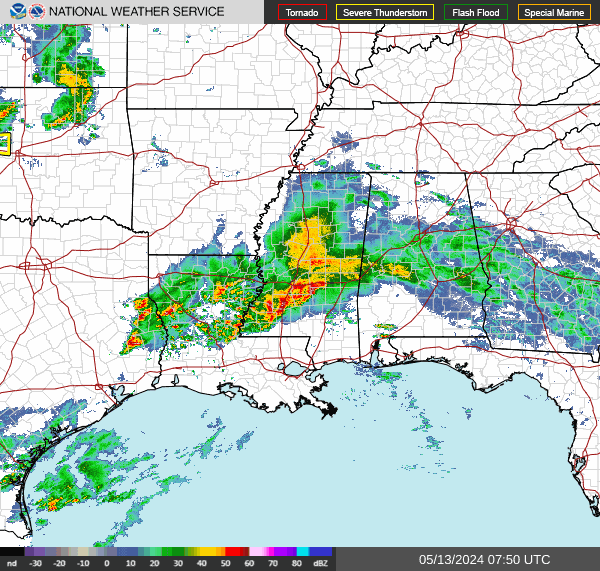
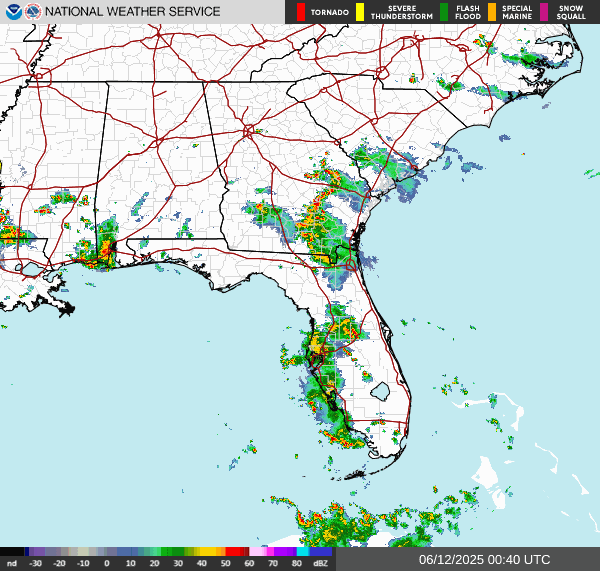




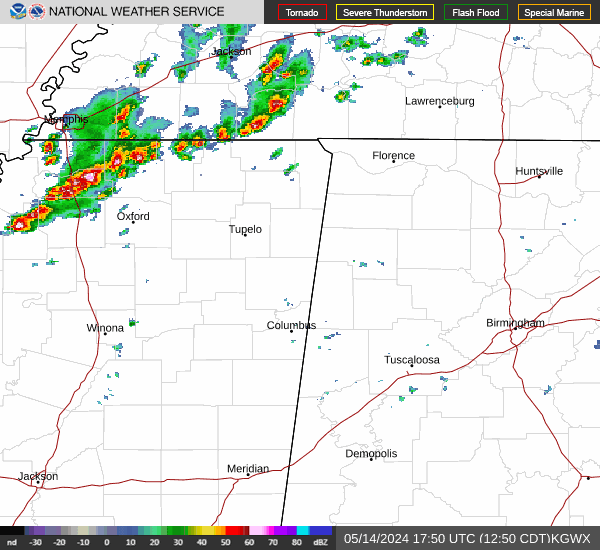
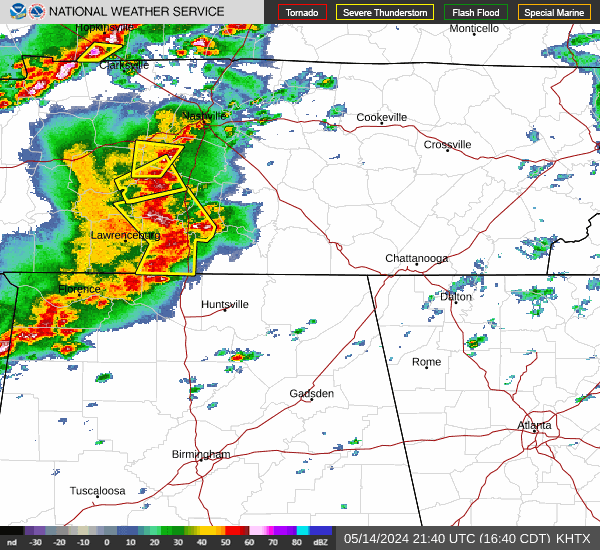
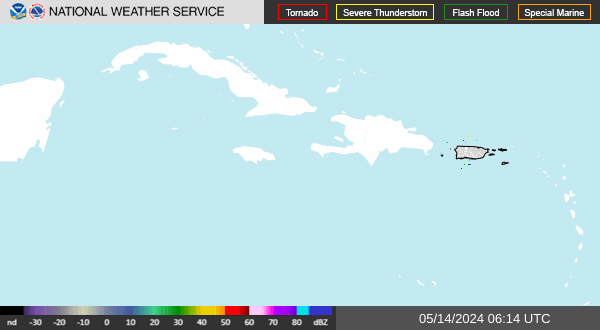



No comments:
Post a Comment